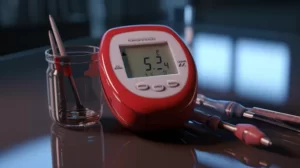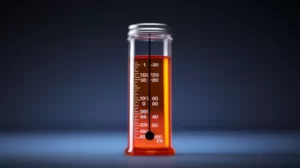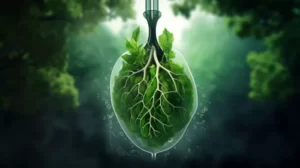We live in a time where a booming medical and pharmaceutical industry promises to cure all our physical woes with the latest breakthroughs. A pill for this, a lotion for that, a surgical procedure promising to turn back years of accumulated body stress. Yet, what if I told you that the most powerful medicine for your body isn’t something you can buy over the counter or have delivered by a needle? No, this medicine doesn’t come from a jar or a blister pack, but from within you. That’s right, within your mind chiefly, released by the power of certain words.
Drumroll, please, because these three “magic” words that have the potential to heal your body are… “I Love You”. Far from being just language-based expressions of affection, these words contain hidden transformative powers. While the skeptical may dismiss the notion outright, I invite you to a thrilling journey of exploration and discovery.
Before you close this browser tab and shake your head thinking this is all woo-woo, fanciful stuff, let’s approach this concept from an angle that we can all buy into – the realm of hard, incontrovertible scientific evidence.
Channels of Love
When you say or think, “I love you,” what you’re summoning within isn’t just sentimentality. Neuroscience tells us that it triggers a cocktail of hormones and neurochemicals that profoundly impact your body’s functioning.
Among these chemicals, the most significant are oxytocin—dubbed the “love hormone”—and endorphins, your body’s natural painkillers. It’s mind-blowing to think, but your brain manufactures its own analgesic in the presence of love and positive emotions. Just a regular chemical factory, isn’t it?
Oxytocin, another potent love-elicited neurochemical, is an absolute wonder-worker. It enhances feelings of trust, empathy, and bonding. Antithetically, it curbs feelings of fear and anxiety—all crucial elements for healing and wellbeing.
Further, the “love hormone” also plays a role in battling inflammation. Long-term inflammation is linked to virtually every chronic illness, from heart disease to diabetes. By modulating your body’s inflammatory responses, simply loving yourself and others may well be one of the most powerful antidotes to sickness.
Neurologically Yours
Clearly, neurotransmitters and hormones play a big part in the ‘I love you’ equation. However, the story doesn’t end there. Beyond the biochemistry of these words, there’s also something equally fascinating—a shift in your brain’s activity. When you fill your thoughts with love and positivity, your prefrontal cortex—responsible for cognitive functions like decision-making, problem-solving, and emotional regulation—lights up.
Studies show that a well-stimulated prefrontal cortex can lead to enhanced equilibrium in the body, even influencing your genetic expression toward health-ish directions. It seems that your genes are, to a surprising extent, eavesdropping on your thoughts.
Let’s Talk Epigenetics
Epigenetics is a field of biology exploring how factors like environment and behavior can turn genes on and off. Essentially, your genes can be influenced by external factors, including thoughts. The revolutionary biologist Bruce Lipton even suggests that conscious mind transformation can lead to physical healing. That is, our beliefs about our bodies and health can manifest actual physical outcomes. Lipton argues that positive thoughts and feelings encourage an optimal environment for genes, fostering beneficial genetic expression.
So here we have another compelling dimension to why the words, ‘I love you’, work their magic on a physiological level. They facilitate a more positive, love-filled internal environment, which may aid “healing” genetic expressions and silencing “illness” expressions.
The Ho’oponopono Technique
Building on the healing power of “I love you,” let me introduce you to an incredible Hawaiian practice known as Ho’oponopono. Despite its tongue-twisting name, Ho’oponopono is a simple mindfulness technique that hinges on four magic healing phrases: ‘I’m sorry’, ‘Please forgive me’, ‘Thank you’ and, yes, ‘I love you’.
Collectively, these sentences reflect repentance, forgiveness, gratitude, and love—a combination believed by many to restore balance and healing. Dr. Hew Len, who popularized the Ho’oponopono technique, even claims he used it to cure a ward of mentally ill criminals without ever meeting them in person. Talk about the power of words.
Start Now
We’ve floated from neuroscience to epigenetics to Hawaiian healing techniques. It’s been a fascinating journey covering one fundamental message: love initiates healing. And this healing begins with yourself. By expressing “I love you” to yourself, you can take advantage of the neurochemical, neurological, genetic, and spiritual benefits that love brings.
So why not start now? Sit quietly for a moment, close your eyes, and gently whisper to your own soul, “I love you.” Who knows, your body might just whisper back… “Thank you, I’m starting to feel better.”
Our minds have vast healing capacities, often underutilized. The phrase “I love you” serves as a key to unlock that dormant potential.
Indeed, the brightest era in health care could well be the one where we recognize the power of an approach that is as simple as it is profound: love, starting with oneself.



